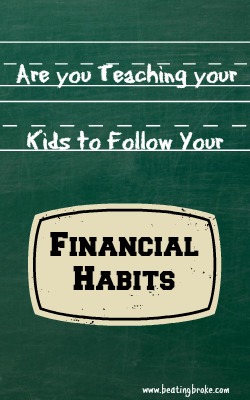My oldest is 10, and he does chores around the house to earn an allowance. He works hard, and we’ve taught him to set aside a percentage for investing (10%), for saving (20%), and for giving (10%). That leaves him to spend 60% of everything he earns.
And spend he does!
He finds it extremely difficult to let his spend money sit and grow so that he can buy something bigger. Instead, as soon as the money hits his hands, he wants to spend it even if it’s a fairly insubstantial amount and can’t buy him much.
He just can’t seem to save up for the things he wants.
Instead, he’s enticed by advertisements. He reads the newspaper and magazines to find free catalogs to send away for, and then he wants to spend his money on any little thing.
 It’s driving me crazy.
It’s driving me crazy.
His money, his life. I should let him spend the money and be disappointed when he has no money to spend later.
Actually, that’s already happened. When we first moved to Arizona, he saw a 2015 calendar at Costco for $15. This calendar had scenic landscapes of Arizona and was quite pretty. I told him to wait because as 2014 came to a close, he could get calendars cheaper. But he couldn’t wait, and then in December and January, he was disgusted to find how cheap calendars got.
Still, his behavior hasn’t changed.
As a parent, I wonder how much I should interfere.
You see, when I was young, I was just like my son. I spent every Saturday at the mall, my money burning a hole in my pocket. I HAD to buy something, even if it was just a pair of socks I didn’t need. Every week, I walked through the same stores, buying stuff I didn’t need, just like my son buys the stuff he doesn’t need now.
However, my mom never stepped in. She gave me a wide amount of freedom. Whatever money I earned was mine to spend how I liked. She didn’t even ask that I set aside a portion of it for savings.
I was a responsible kid and bought my own car, paid my insurance, paid for gas, and also bought my own clothes. I think she figured that I was handling my money well, so it was up to me to decide what to do with the rest.
When I was a teenager, my friend and I used our money from our job to go out to eat and see a movie every Friday. Sometimes we’d go out to eat on the weekdays, too.
What a waste!
Imagine if I had instead invested just a small portion of that in a Roth IRA. Or if I had saved it to pay for part of my college education. Maybe I wouldn’t have graduated with $25,000 in student loan debt.
Even now, I have a hard time saving, though I am getting much better. I’m finally able to stick to a budget and make saving a priority. It’s taken me 40 years to break bad spending habits that I learned in childhood. Let’s be honest, getting a hot deal isn’t really a deal if you don’t need the item and it robs you of the ability to save.
I want to teach my son this lesson now, so he can be more financially responsible than I was for many years. But that lesson is oh so hard to teach.
How much do you guide and interfere in the way your child chooses to spend money?
For More Great Reads, consider checking out Kidwealth.com and kidsaintcheap.com.
Melissa is a writer and virtual assistant. She earned her Master’s from Southern Illinois University, and her Bachelor’s in English from the University of Michigan. When she’s not working, you can find her homeschooling her kids, reading a good book, or cooking. She resides in New York, where she loves the natural beauty of the area.
